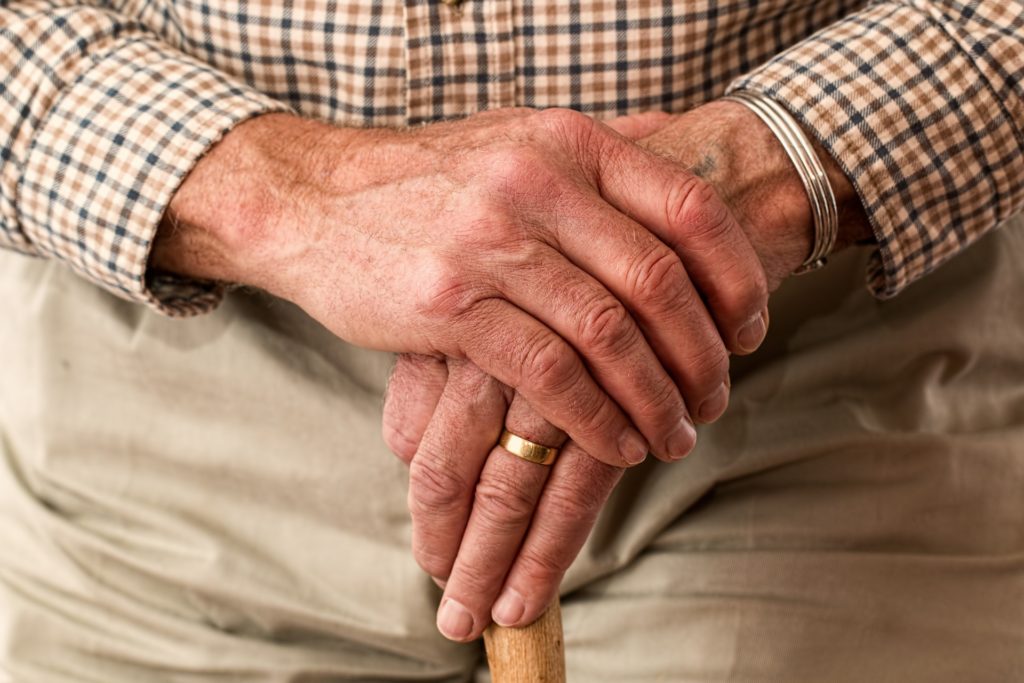
Supporting depressed or isolated seniors
Dr. Richard Sztramko, geriatrician, St. Peter’s Hospital
How you can help support depressed or isolated seniors
How does depression look different in seniors compared to the rest of the population?
People who are depressed tend to feel down, lose interest in things they previously enjoyed, and lack motivation. These symptoms have to be around for a couple weeks before someone is diagnosed with depression.
In seniors, depression is often accompanied by physical symptoms. Arthritis pain, for example might become worse. They may feel physically ill, or lose their appetite completely.
Depression can also look like, or start to cause, symptoms of dementia. An older adult with depression may start to have trouble keeping track of things, following through on obligations or remembering things they hadn’t previously had trouble with.
What are the risks when seniors become isolated?
It’s important to note that there is a difference between people who simply like being alone and people who would like to get out and be social, but can’t. People who are isolated and can’t get themselves out of that cycle can start to deteriorate.
Isolation can lead to mental health problems, like depression, but it can also cause or worsen physical problems. If someone is isolated and isn’t eating, being physically active, or taking their medications, their body isn’t being cared for. That’s why it’s important to take action if you suspect that someone you love is becoming isolated.
What can you do to stop the cycle of isolation and depression in seniors?
Every case is different. If you are experiencing depression and isolation yourself, your family doctor is a good place to start a conversation about how you can get help. There are lots of community resources available and they can help choose the ones that are right for you. Start with simple things that you can fit into your routine, like making a meal you enjoy or taking part in an activity you used to do. It’s important to ask for help, and remember that people in your life want you to be healthy and will support you in reaching that goal.
If you have a loved one who is suffering, think about an approach that might work for them. They may need a blunt conversation, a gentle coaxing, or someone to take part in meals or activities with them.
What does the treatment process for depression in seniors look like?
Because a number of physical and mental factors can be at play in depression in seniors, we first want to rule out any underlying illness that could be causing it. We may check for a thyroid issue, or severe pain to see if treating those problems helps with the depression.
It’s helpful for a family member to take part in the treatment process and attend appointments so we can get a sense of what the person was like before they became depressed. If they are experiencing symptoms of dementia, we will try treating their depression in hopes that those dementia symptoms go away.
Treatment sometimes involves medication, different types of talk therapy, or both. It’s also important for the patient to start developing good habits that can improve their mood. Getting exercise, eating well, and getting enough sleep can make a big difference for someone who has depression.
We may also recommend the patient join a community group or class that can help them develop a routine. An exercise class that is prescribed for someone’s physical health often ends up greatly benefitting their mental health as well.
Where can I get help in the community?
If you aren’t sure where to start, visit your family doctor for advice.
These community services may also be helpful. Click on the links to learn more:
For mental health support:
Salvation Army Crisis Hotline: Toll-Free at 1-855-294-4673 or 24 hours at 905-522-1477
For transportation support:
Wheels of Hope (for transportation to cancer care appointments)
